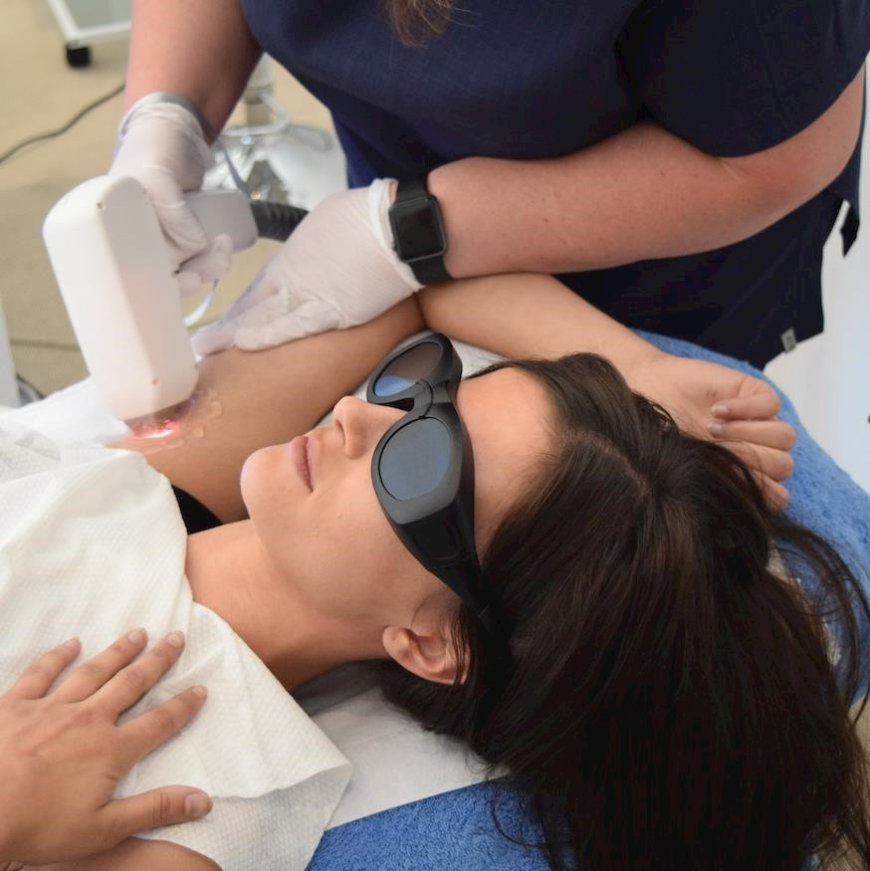Is Laser Hair Removal Haram or Halal for Muslim Women?
Are you thinking about permanent hair removal? Laser hair removal is the best solution for this problem but Is It Haram to Do Laser Hair Removal? Find out more!
Laser hair removal has become a popular cosmetic procedure for both men and women, including Muslim women, seeking a more permanent solution to unwanted body hair. However, for many Muslims, the permissibility of such treatments is a matter of concern due to religious guidelines regarding body modification and personal grooming. In this article, we will explore Is It Haram to Do Laser Hair Removal in Dubai for Muslim women from a religious and cultural perspective.
The Islamic Perspective on Hair Removal
Islamic teachings emphasize the importance of modesty and personal hygiene. Many Islamic scholars have addressed the topic of hair removal in the context of both religious obligations and cultural practices. For Muslim women, removing hair from certain areas of the body, such as the face, underarms, and bikini line, is often encouraged for cleanliness and modesty. This is based on several Hadiths (sayings of the Prophet Muhammad, peace be upon him) that mention the removal of hair in these areas as part of the practice of fitrah (natural disposition), which is considered part of Islamic hygiene.
However, there is a distinction between the types of hair removal methods. Common methods such as shaving, waxing, and threading are permissible in Islam. But the permissibility of more permanent methods, like laser hair removal, raises questions.

Understanding Laser Hair Removal in Islam
Laser hair removal works by using concentrated light to target and destroy hair follicles, preventing future hair growth. The procedure is considered to be a form of permanent hair removal, which makes it different from temporary methods like shaving or waxing. For Muslim women considering laser hair removal, the primary question is whether this method of hair removal is in line with Islamic principles.
Halal or Haram: The Religious View
Most Islamic scholars agree that laser hair removal is halal (permissible) for Muslim women under certain conditions. Here are the main points that support this view:
-
Health and Safety: Islamic teachings encourage seeking treatment that is beneficial to one’s health and does not cause harm. As long as the procedure is safe, does not cause undue harm or pain, and is performed by a qualified professional, laser hair removal can be seen as a permissible treatment for personal grooming.
-
Intent and Purpose: Laser hair removal is performed for hygienic, aesthetic, or personal reasons. As long as the intention behind the treatment is not excessive or driven by vanity in a way that contradicts Islamic modesty, the procedure can be considered permissible. Islam encourages maintaining modesty and not indulging in excessive beautification, but laser hair removal typically falls within the realm of personal cleanliness.
-
Avoiding Unlawful Modifications: Some concerns around cosmetic treatments in Islam stem from the idea of tattooing or altering one’s appearance in ways that are seen as unnatural. However, laser hair removal is not a modification of the body in this sense. It is simply a method of removing unwanted hair, which is generally not viewed as altering the body’s natural state in a way that goes against Islamic principles.
When Could Laser Hair Removal Be Considered Haram?
While Is It Haram to Do Laser Hair Removal is generally considered halal, there are a few exceptions where it could potentially be viewed as haram (forbidden):
-
Excessive Vanity: If the intention behind the procedure is driven by excessive vanity or a desire to flaunt one’s appearance, it could be seen as contradicting the Islamic principles of modesty. Islam encourages women to be modest and not to draw unnecessary attention to their physical beauty.
-
Non-Medical Use: If laser hair removal is being used for purely aesthetic reasons, such as to conform to unrealistic beauty standards or out of peer pressure, it may not align with the spirit of Islamic teachings.
-
Unlawful Areas: Some scholars may raise concerns if laser hair removal is performed on areas of the body that Islam specifically prohibits altering, such as the eyebrows or other facial features, where changes might be viewed as unnatural.
Conclusion
In conclusion, laser hair removal is generally considered halal for Muslim women, provided it is done for the purpose of hygiene and modesty, in line with Islamic principles. The procedure should be carried out safely, by a qualified professional, and with the right intentions. As with any personal decision, it’s advisable to consult with a knowledgeable Islamic scholar or authority who can offer guidance based on specific circumstances and interpretations of Islamic law.

 hudabatool778
hudabatool778